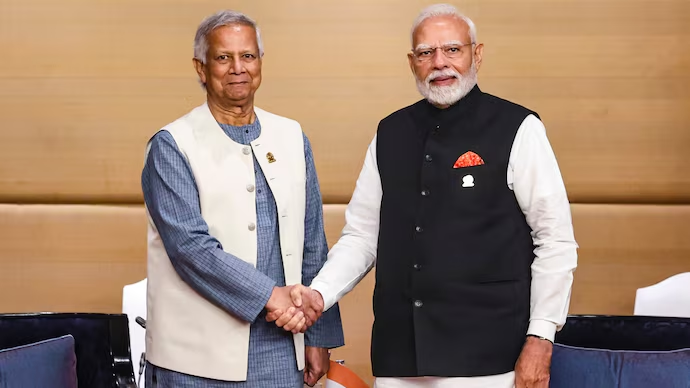Now Reading: Muhammad Yunus Says He Asked PM Modi to Stop Hasina’s Attacks, But Got a Social Media Reality Check
-
01
Muhammad Yunus Says He Asked PM Modi to Stop Hasina’s Attacks, But Got a Social Media Reality Check
Muhammad Yunus Says He Asked PM Modi to Stop Hasina’s Attacks, But Got a Social Media Reality Check

Nobel Peace Prize laureate Muhammad Yunus has claimed that he requested Prime Minister Narendra Modi to intervene and stop Bangladesh Prime Minister Sheikh Hasina’s public criticisms against him. However, according to Yunus, Modi responded that it would not be possible in the current age of social media. The revelation sheds light on the ongoing tensions between political leadership and independent voices in South Asia.
Yunus Opens Up on Strained Ties with Hasina
Speaking recently, Muhammad Yunus expressed his discomfort over repeated public attacks by Sheikh Hasina’s government. He said he had approached PM Modi during one of his visits to seek a way to put an end to what he called a “targeted campaign” against him.
Yunus is globally respected for founding Grameen Bank and his work on microfinance, but in recent years, he has faced scrutiny and legal pressure in his home country, Bangladesh.
PM Modi’s Response Highlights Digital Reality
As per Yunus, Prime Minister Modi responded diplomatically, stating that in today’s world, especially with the rise of social media, it is nearly impossible to control who says what. This response reflects a broader reality of political discourse in the digital era, where statements—supportive or critical—spread rapidly, often beyond governmental control.
It also indicates India’s cautious approach to intervening in matters that involve internal dynamics of a neighboring country, particularly one with which it shares a sensitive diplomatic relationship.
Wider Implications for South Asian Democracy
The situation raises questions about freedom of expression, treatment of civil society leaders, and the influence of social media on diplomatic and domestic affairs. In countries like Bangladesh and even parts of India, independent voices often face institutional and political resistance.
For citizens in Tier 2 Indian cities—where political awareness is growing and access to online platforms is rising—this story resonates deeply. It brings attention to how social media can amplify both support and criticism, changing how public figures are treated.
Conclusion:
Muhammad Yunus’s remarks reflect more than just a personal concern—they spotlight the challenges civil society leaders face in politically charged environments. PM Modi’s response, highlighting the uncontrollable nature of online discourse, underlines the changing rules of political engagement in the digital age. As regional dynamics evolve, stories like this offer valuable insight into the complex intersection of diplomacy, politics, and public opinion.

























